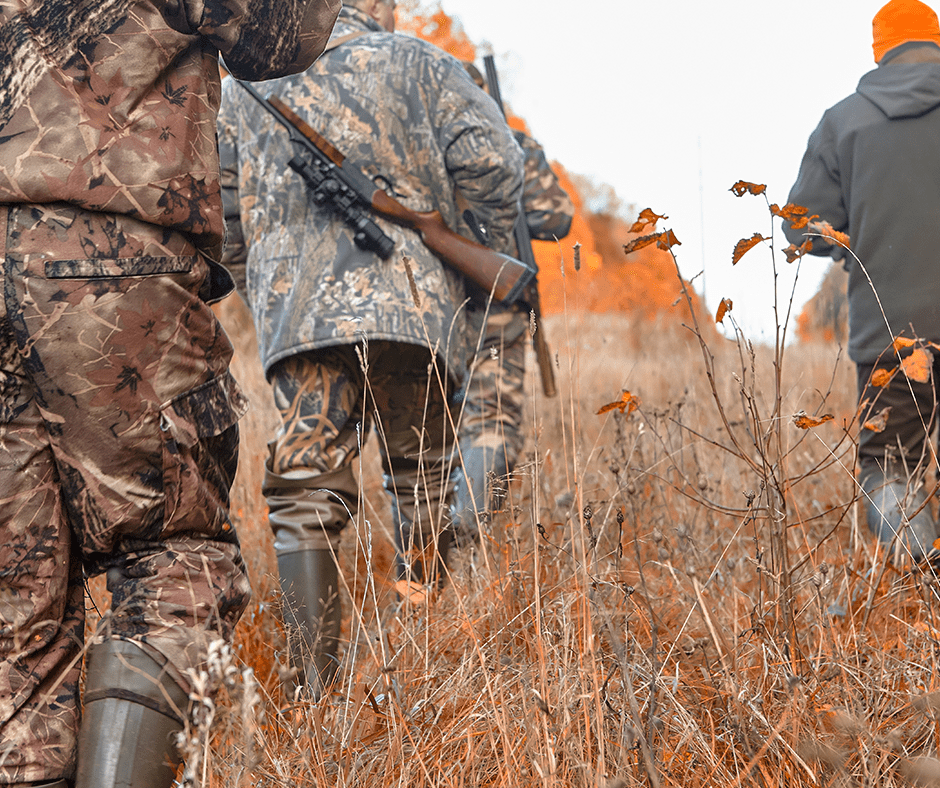Your hunting partner, good or bad, will usually determine whether you will be a successful trophy hunter or not. Many trophy hunters hunt alone due to the fact that it is hard to find a good hunting partner. This allows them to do what they have to do without any restrictions. Hunting alone means having all of your best spots to yourself. Anytime only one person enters the woods, they will only leave half as much scent on the ground as would two people in the same woods.
To have three or more hunting partners is probably not a good idea either. Any time there are more than two people hunting any one area, the odds of one of them taking home a monster buck lowers dramatically. Groups of people hunting on small, highly pressured areas are usually a mistake that cannot be fixed.
If you have a bad or indifferent hunting partner you should think of moving on if you want to be successful at trophy hunting. Anyone who does not show up on time in the morning, or is not ready and waiting for you when you pick them up, should be avoided. If you find find yourself always doing all of the work for both of you, it is time to move on. If your partner is always in a negative mood and does not push you to keep going, you are better off without them. Never settle and hunt with someone who does not bring something positive to the party.
A great hunting partner will always make sure you get up in time in the early hours of the morning. They will always share in all of the tasks that lead to that monster buck. A great hunting partner is always willing to learn and is always willing to try something new. They will work as hard trying to get you your buck as they do trying to get their own.

If you do not like hunting alone find yourself a good hunting partner. Do not settle for second best, as you will always be disappointed. Do not feel guilty if you tell your present hunting partner that you are no longer going to hunt with them. This is for the best if you truly want to hunt mature bucks. It is as hard to find a good hunting partner, as it is to find good hunting property.
Just because you find someone who shares your desire to hunt trophy bucks, you do not have to hunt the same properties. They can help you set up your properties, and you can help them do the same. Then when it is time to hunt, you both can go your separate ways. At the end of each hunt, you can compare notes and give each other ideas on how to turn the odds more in your favor. This works well in many cases.
If you can find a great hunting partner, and you both decide to hunt the same properties, you are very lucky. Any time you can cover more than one direction that a mature buck might travel, you have doubled your odds of one of you getting a chance at him. You will know when you find this kind of hunting partner, as you will not be afraid if they sit in one of your best stands. You know they will be as careful as yourself, and the deer will not know they were even there. You will both feed off each other, and even though you think the same, you both will have different ideas on how to handle each situation that you are confronted with.
Enjoy the warm summer months, not tick bites!
As Memorial Day approaches many of us are planning to get outdoors and enjoy summer months. There isn’t much we don’t love about being outdoors and enjoying the benefits of an active lifestyle. However, if there is one negative that we all have to deal with, let’s agree on the dreaded and disgusting tick. With the return of warm weather comes the risk of tick bites. Unfortunately, the threat of acquiring diseases can be very real and very dangerous.
Most dangers associated with the woods or water can be seen and avoided accordingly. Not the tick. You can spray down with your favorite repellent, and you can wear tight fitting cover-up style clothing, but none of that is a guarantee. Since they cannot fly or jump, many types of ticks climb up to the tips of grasses and wait. When they detect a passing host, they simply climb aboard. Merely casting a shadow on some ticks can give away your presence. Ticks can also detect animals by their breath, odor, heat, moisture or vibrations caused by their movement.
